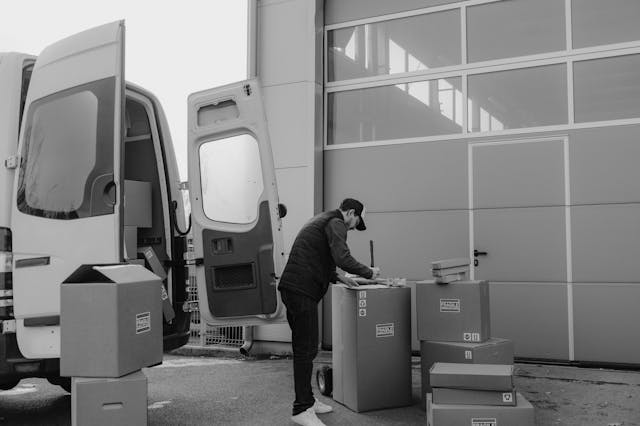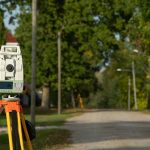When life changes course, and a move is on the horizon, homeowners with solar panel systems may face a unique challenge. How should they deal with the solar panels on their roof? The process of safely removing and recycling these panels, known as decommissioning, is a task that requires careful thought and planning. In this article, you’ll be guided through the key steps of decommissioning a home solar panel system in the UK.
Understanding the Lifespan and EOL of Solar Panels
The life expectancy of solar panels is a key factor to consider when planning the decommissioning process. Most photovoltaic panels, made from silicon, have a lifespan of around 25 to 30 years. However, this doesn’t mean they completely cease to function after this period. Instead, their energy efficiency gradually decreases.
Cela peut vous intéresser : What are creative ways to use space-saving furniture when moving to a smaller UK home?
When solar panels reach their end-of-life (EOL), they can still generate electricity but at a much lower efficiency. The decline in performance is what typically triggers the decision for decommissioning.
If you’re planning a move, it’s essential to check the age and condition of your solar panel system. If it’s nearing its EOL, consider including the decommissioning process in your moving plans.
En parallèle : How to verify the authenticity of a moving company in the UK?
The Decommissioning Process
Decommissioning involves safely removing the panels and other components of your solar power system. The process begins with switching off and disconnecting the system from your property’s electrical grid. After that, the panels, inverters, mounts, and other elements are carefully disassembled and removed.
The entire process needs to be carried out with safety as a priority. Professionals with specific knowledge and experience in solar panel systems are best suited to handle the task. By hiring qualified personnel, you’ll ensure minimal risk of injury and damage to your property.
Recycling and Waste Management of Solar Panels
After decommissioning, the next step is to deal with the waste generated. Solar panels are made up of various materials, including glass, silicon, metals, and plastics. Many of these materials are recyclable, making solar panels a valuable waste resource.
In the UK, there are established waste management practices for solar panels. Companies like PV Cycle offer nationwide services for collecting and recycling solar panels. They ensure that as much as 90% of the materials in the panels are recovered and reused.
So, instead of ending up in a landfill, your decommissioned solar panels can contribute to the creation of new products.
The Future of Solar Panel Recycling
The practice of solar panel recycling is still relatively new. However, it’s gaining momentum as the number of EOL solar panels increases. With advancements in technology, the efficiency of recycling processes will improve.
New techniques, such as mechanical processing, aim to recover even more materials from solar panels. This process separates the different layers of a solar panel to extract the glass, metals, and silicon. There’s also research into chemical processing methods to recover the rare and valuable metals used in some types of solar panels.
How to Start the Decommissioning and Recycling Process
If your solar panels are nearing their EOL or if you’re moving and need to decommission your system, where should you start? The first step is to contact a professional solar panel company. They can assess your system and provide advice tailored to your specific situation.
From there, they will handle the decommissioning process, ensuring it’s done safely and professionally. The company can also guide you through the recycling process, connecting you with a suitable recycling service if necessary.
Remember, while the decommissioning and recycling process might seem complex, it’s an important part of responsibly managing the lifespan of your solar panel system. By taking these steps, you’re not only ensuring your move goes smoothly, but also contributing to a more sustainable future.
In the end, the decommissioning process of a home solar panel system involves careful planning and professional handling. With the increasing popularity of solar energy, the need for efficient recycling systems is paramount. Thankfully, with companies dedicated to the safe and efficient recycling of solar panels, homeowners can rest assured that their panels will not contribute to waste, but rather continue contributing to sustainable living, even at their EOL.
The Role of Local Government and Regulatory Bodies
In the UK, local government and regulatory bodies play a key role in the decommissioning and recycling process of solar panels. They establish guidelines and regulate the procedures to ensure safety and comply with waste management laws.
The Waste Electrical and Electronic Equipment Directive (WEEE Directive) is the core regulatory framework in the EU. This directive makes producers of electrical equipment, including solar panels, responsible for the end-of-life management of their products. They must finance the recycling process and guarantee that the panels are properly recycled.
Local councils also provide advice and resources for homeowners on how to handle panel waste. They can give you information about professionals or companies that specialise in decommissioning and recycling EOL solar panels.
Also, before starting the decommissioning process, it’s advisable to check with your local council. There may be planning permissions or building regulations related to solar panels that you need to be aware of.
The Impact on Renewable Energy and Sustainability
Decommissioning and recycling of solar panels have a significant impact on renewable energy and sustainability. Solar panels contribute to reducing carbon emissions and reliance on fossil fuels. However, this positive impact isn’t just during their operational life. Even after they reach their EOL, solar panels can continue to support sustainable practices through recycling.
Recycling of solar panels allows valuable materials to be recovered and reused, reducing the need for new raw resources. For instance, silicon from photovoltaic solar panels can be reused to create new solar cells.
Moreover, recycling processes for solar panels are continually improving. New technologies are making it possible to recover even more materials and reduce waste. This progress is essential for the future of solar energy. As the number of EOL solar panels increases, efficient recycling systems will be crucial to managing this panel waste effectively.
Conclusion
In summary, the decommissioning of a home solar panel system before a UK move requires understanding the lifespan of your solar panels, planning for the decommissioning process, and managing the waste generated. It is essential to engage with professionals who can safely disassemble your solar system and guide you through the recycling process.
Local regulations and directives, like the WEEE Directive, play a guiding role in this process. Homeowners are encouraged to liaise with their local government for any related permissions or guidelines.
Lastly, the decommissioning and recycling process contributes significantly to renewable energy and sustainability. It ensures that we continue to benefit from the valuable materials in the panels and that they do not end up as waste.
While the process may seem complex, remember that it’s an essential part of the life cycle of solar panels. As homeowners, we play a part in promoting renewable energy and contributing to a sustainable future. With the advancements in technology and increasing awareness of these processes, the future of solar energy continues to shine bright.
















